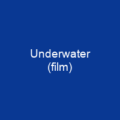What Exactly Is Exploration?
Exploration is the process of exploring with an expectation of discovery. It’s like embarking on a journey into the unknown, where every step could lead to something new and exciting. Have you ever wondered what it would be like to venture out into uncharted territories? That’s exploration at its core!
Organised Exploration: A Human Endeavor
Organised exploration is largely a human activity, but exploratory behavior can also be observed in many other organisms. Think about how bees navigate their hives or how dogs explore their surroundings – they are all forms of exploration! However, when it comes to complex and systematic exploration, humans take the lead.
Types of Exploration
There are several types of exploration that have shaped our understanding of the world. Let’s dive into some of them:
- Geographical Exploration: Discovering lands and regions of the planet Earth remote or inaccessible from the origin of the explorer. Imagine Christopher Columbus setting sail to find new worlds – that’s geographical exploration in action!
- Underwater Exploration: Exploring any underwater environment through direct observation, remote observation, or data collection and analysis. Think about Jacques Cousteau’s expeditions into the deep blue sea.
- Space Exploration: Using astronomy and space technology to explore outer space through robotic probes and human spaceflight. From the Apollo missions to Mars rovers, space exploration has always been a quest for knowledge and discovery.
- Urban Exploration: Exploring manmade structures, often abandoned ruins or hidden components of the environment. It’s like uncovering the secrets of old buildings that have been forgotten over time.
- Geological Exploration: Discovering mineralisation in rock outcrops or sediments. This is where geologists use their tools to find valuable resources and understand Earth’s history.
Early explorers settled in Europe and Asia, and later cross-cultural exchange occurred through trade and exploration. The Age of Discovery led to European scholars rediscovering early geographers’ works and expanding knowledge about the world’s geography. Modern atlases like Abraham Ortelius’ Theatrum Orbis Terrarum depicted all known land on Earth.
Uncharted Waters: The Ocean’s Mysteries
Less than 10% of the ocean has been mapped, and much remains unknown about underwater life and populations. Imagine how many new species could be discovered in these unexplored depths! Space exploration is driven by scientific research, national prestige, and ensuring humanity’s future survival. Urban exploration involves photography, historical documentation, and sometimes trespassing onto private property, while geological exploration relies on direct observation of mineralisation in rock outcrops or sediments.
Modern Exploration Techniques
More recent mineral exploration techniques include the use of geologic, geophysical, and geochemical tools to identify anomalies that narrow the search area. These methods consider previous experience and geological evidence to prioritize areas of high probability over those of low probability. Once an anomaly is identified, further exploration can be done using soil sampling, drilling, seismic surveys, and other methods to assess the potential reserve.
Exploration Modes
Exploration modes include:
- Systematic Examination or Investigation: A planned but flexible approach that acknowledges the possibility of unexpected discoveries. It’s like having a map but still being open to new paths and surprises.
- Diagnostical Examination: Identifying the nature and cause of a phenomenon through analysis and evidence exploration. This is akin to solving a mystery, piece by piece.
- Exploratory Behavior in Animals: A sequence of stages including search, movement towards relevant stimuli, and potential discovery. It’s like how dogs sniff out their way around the house – they are naturally curious!
Exploration is often characterized by novelty, unfamiliarity, or the expectation of discovery, but can occur simultaneously with directed examination. It’s a blend of adventure and science, where every step could lead to something extraordinary.

Exploration is not just about finding new places or resources; it’s a journey of discovery that pushes the boundaries of what we know. It’s an adventure that keeps us curious and driven, reminding us that there’s always more to explore in this vast and mysterious world.
You want to know more about Exploration?
This page is based on the article Exploration published in Wikipedia (retrieved on January 26, 2025) and was automatically summarized using artificial intelligence.





